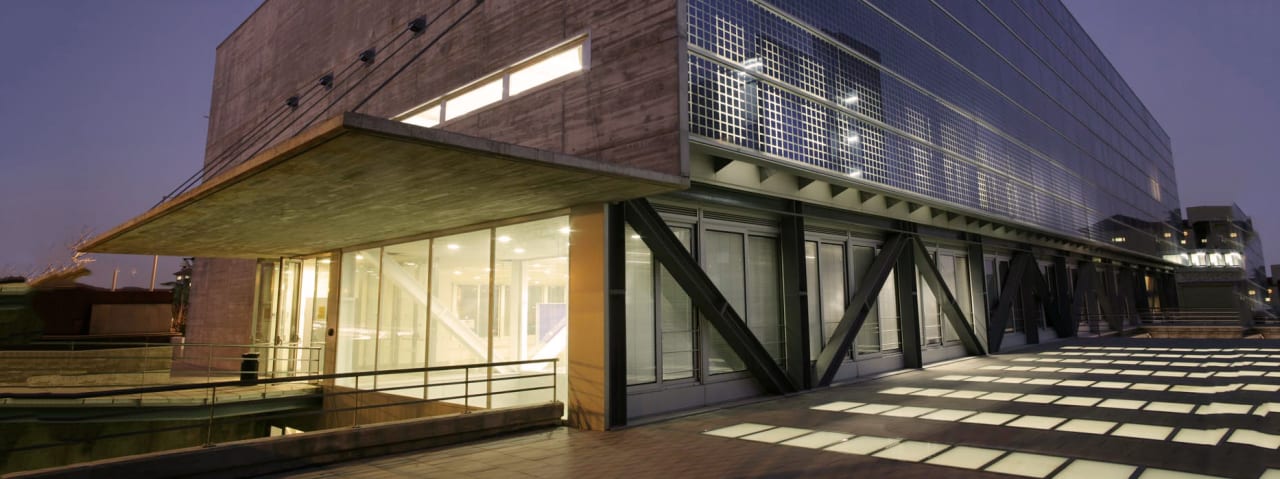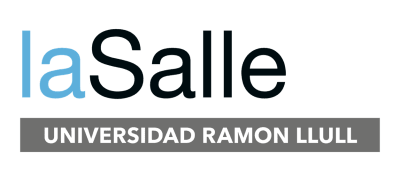
Bachelor's Degree in Multimedia Engineering - Minor in Videogames
La Salle Campus Barcelona – Universidad Ramon Llull

Key Information
Campus location
Barcelona, Spain
Languages
English, Spanish,
Study format
On-Campus
Duration
4 years
Pace
Full time
Tuition fees
EUR 10,080 / per year
Application deadline
Request info *
Earliest start date
02 Sep 2024
* the admission process remains open until the program is full
Introduction
La Salle was the first university in Spain to offer both university studies in Multimedia Engineering (1996) and the first Degree in Multimedia Engineering (2008). More than 20 years of training and professional activity of our graduates are the best guarantee of our work.
During your training process at La Salle Campus Barcelona, you will have access to unique facilities like Medialab, Userlab, and Mediadome. In addition, when you enroll in this degree you will have the opportunity to:
- Participate in both real corporate projects and European research projects in which La Salle is involved.
- Do internships at top companies worldwide.
- Participate in exchanges at top multimedia universities, such as MIT or the Carnegie Mellon University.
- Carry out both projects and practice work with fellow students who are enrolled in different engineering degrees.
- Continue your training at the campus by enrolling in master's degrees and doctorates of the first level.
- A specialization in videogames is available in the curriculum of this degree. Said specialization will be stated in your degree certificate as 'Specialisation in Videogames.'
La Salle Campus Barcelona - University Ramon Llull
- 1a University in Spain in offering university studies in Multimedia Engineering (1996)
- More than 20 years training Multimedia Engineers
- 100% occupation of our students
Smart Learning
A new educational model for a new normal.
This new normal requires a new way of teaching and learning, adapted to a changing and uncertain situation that demands flexible, intelligent, and technological learning that adapts to all the students’ new educational needs.
La Salle Campus Barcelona - Ramon Llull University endorses the new Smart Learning model and takes another step in its innovative DNA, affecting all areas of the educational process: the service to the students, international exchanges, remote internships, the telework model applied to internships with companies, the job bank, and research projects.
What is the new Smart Learning model?
State-of-the-art technology has been implemented in the classrooms that will allow students, both national and international, who cannot get to the Campus to attend and participate in classes without being physically in the classroom. The sessions given with on-site students will be broadcast live over the Internet and those who attend virtually will be projected on screens so that teachers and on-site students can see and interact with them. All students, both on-site and those who cannot come to the campus, will form a single group while maintaining the same academic schedule and contact with their classmates and teachers.
With the new Smart Learning model, students will have training which will be:
- Personalized, because it adapts to the student and their needs or circumstances, regardless of the health scenario.
- Flexible, because it overcomes the barriers of the online or face-to-face methods with a platform that allows face-to-face, blended, and distance learning.
- Intelligent, because it is a new way of teaching and learning that combines physical and interactive experiences.
- Technological, in order to implement the Smart Learning methodology, classrooms have been transformed into Smart Classrooms, which consist of:
- Audio system with more than 8,000 virtual microphones per classroom
- Cameras equipped with artificial intelligence
- Smart Boards to share content to and from the Smart Classroom, enhancing collaborative work.
Curriculum
Methodology
When you study the degree in Multimedia Engineering, we will provide you with the appropriate knowledge by means of a methodology that is based on the following:
- A practical approach to concept learning.
- The introduction, from the first year onwards, of an LSMaker—the robot you with work with in order to make it grow throughout your learning process.
- A business education that includes a wide range of business-world-oriented subjects you will take throughout the degree.
- The application of different multimedia-environment-oriented disciplines.
- The use of gamification methods, which is game mechanics applied to classroom work in order to help the evolution of your learning process.
Gallery
Program Outcome
Goals
Students who graduate in Multimedia Engineering become excellent professionals in technological integration, thus being able to decide which form should technology adopt in order for it to be truly efficient when playing its mediating role in the creative and communicative process. Multimedia integrates several disciplines focused on creative, technological, and management, and production aspects. Therefore, the curriculum of this degree consists of a set of subjects that complement each other such as Conceptualisation.
- Scriptwriting.
- Digital photography.
- User experience.
- Production.
- Interactive installations.
- Virtual reality.
- Programming or physical simulation.
Said subjects have been chosen to provide students with suitable knowledge with the aim of enhancing both conceptualization and development of virtual interaction environments without any limits regarding neither communication support nor specific field of application. Hence, due to the transverse nature of Multimedia itself as well as its strategic position, graduates can apply their knowledge to any industry—
- Videogames
- Film Technology
- Mobile Apps
- Web technology
- Virtual Reality
- New Interface
- Research and innovation
It is undeniable that the video game industry has attained a leading position within the audiovisual and interactive entertainment industry—it is expected to grow 23.7% each coming year. By studying at La Salle you can specialize in videogames, thus gaining the necessary knowledge to attain artistic, design, and programming positions in top companies worldwide. You will be able to both perform practical training at unique labs and be granted official certifications enjoying professional recognition internationally.
Career Opportunities
Career Opportunities
As a graduate in Multimedia Engineering by La Salle, you will take part in projects and teams, performing different responsibilities and responsibilities, such as:
- Web interface designer.
- Application designer.
- Game designer.
- User research consultant.
- Interface designer for video games.
- 2D and 3D Designer.
- Animator.
- Technician in Motion Capture.
- Audio and video editor.
- Photographer.
- Analyst - web programming.
- Variety of app programming.
- Videogames programming.
- Artificial Intelligence creator.
- RV and AV Technician.
- Entrepreneurs.
- Multimedia Project Manager.
- Multimedia equipment manager.
- Videogames manager.
- Scrum master.